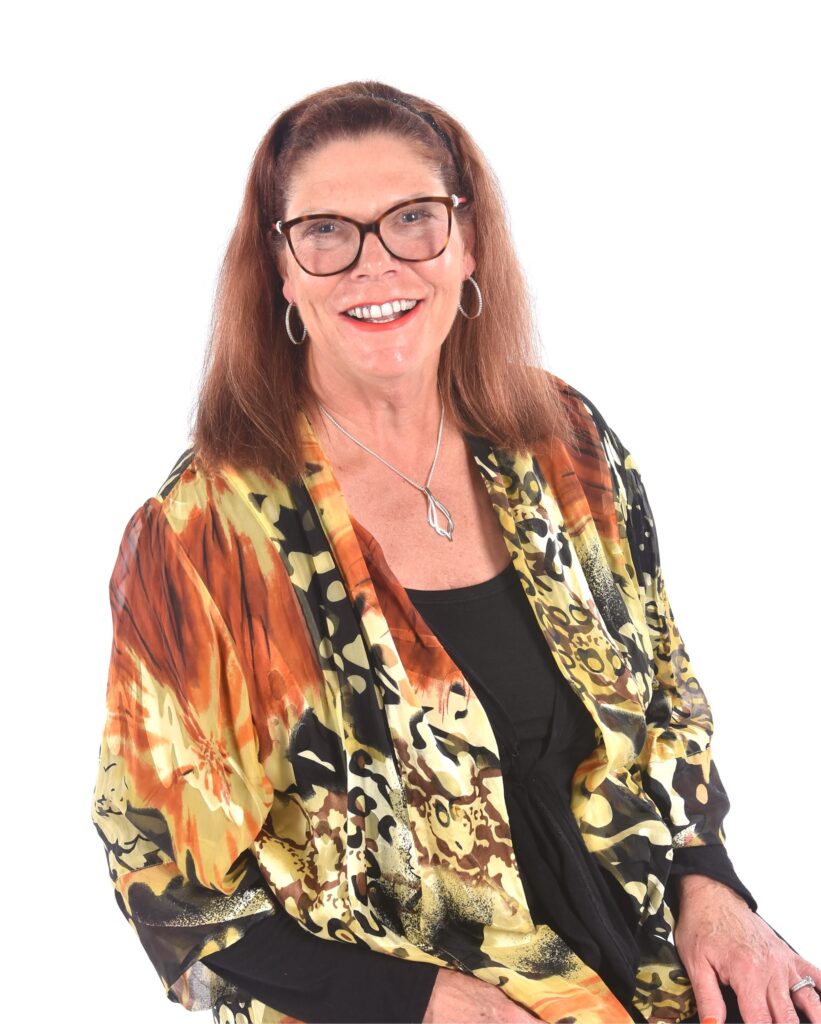MY LOVE-HATE RELATIONSHIP WITH STRUCTURE
I need structure and loathe it. I am a creature of habit. I change things occasionally so my creativity and spontaneity don’t suffer. I crave newness, and if it doesn’t happen often enough, I spiral into a rut.
The trouble is, my need-to-do and want-to-do lists are very long. My current “morning routine” has at least 15 items, with more added every month. As of today, about half are completed consistently, so I guess that is progress.
I have a “perfect day” list with everything “good for me” that I would do in a day if I had all the time in the world—things to do at home anyway. The list does not include traveling or being out of my norm.
With my ADHD and best functioning as a visual person, if I don’t write the task down, it doesn’t get done until I’ve completed whatever the goal is for at least 30 or more days so that it becomes a certified “habit.”
Habits: the Good
During the pandemic, I read Atomic Habits by James Clear and Mini Habits for Weight Loss by Stephen Guise and focused on making small positive changes.
I love the idea of doing a little bit of a big goal every day until it becomes ingrained. For instance, I wanted to read more, so I set a goal to read two pages daily. Of course, I generally read more than that, but if I set a minimal goal, I could quickly achieve it and feel accomplished for the day, even on those days that I didn’t “feel like it.”
Another goal was to walk to the end of the block, which took less than 5 minutes. Within a short while, my husband and I were walking to the end of the neighborhood, which took 30 minutes. Now, I regularly walk 8k to 10k steps every day.
My oldest habit came from my Grandmother, who begged me to make my bed daily. I didn’t see the point in my teen years; after all, you are just going to get back in it again, but she assured me that it made such a difference in reducing the cluttered look of the room, reducing stress, and in feeling accomplished for the whole day. As usual, she was right. Now, I make the beds at hotels, relatives and friends’ houses, and on cruise ships before I leave the room. It is too uncomfortable to leave it unmade.
Habits: The Bad and the Ugly
There is also the “dark side” of habits. I used to be a smoker over twenty-five years ago. Both of my parents smoked, as well as a lot of friends in high school. It was the cool thing to do, and I smoked “Kools” to emphasize the point.
What made me go all in was a friend who had lost some weight, and when I asked her how, she told me about her smoking habit. I thought my weight had been an issue since I was 12. You know that saying, “I wish I weighed what I did that first time I thought I was fat?” Anyway, that started that particular habit—along with wanting to fit in with the cool kids.
I was able to quit a few times. I tried gradually limiting the number of cigarettes per day, hypnosis, Nicoderm gum, patches, Baoding balls, teas, and white-knuckling it. I was able to quit relatively quickly when I was pregnant because there was my baby to think about, and I had an excuse for “being fat.”
What finally worked for me was marketed as Zyban, otherwise known as Wellbutrin.* Well, that and my Grandmother’s death. If she wasn’t immortal, none of us are, so I figured I’d better start paying more attention to my health.
I liked the feeling Wellbutrin gave me, energy and calmness all at the same time. It also made me feel more focused (it is known to help with ADHD), a win-win.
After I had successfully quit smoking at 40, my Doctor asked if I wanted to go off the medication, and I really didn’t. I liked how it made me feel. The benefits outweighed any side effects of the medicine. I laughed and said I’ve gone from being addicted to cigarettes to Zyban. But there are worse things.
Habits Many Years Later
I tried a year ago to go without the Zyban/Wellbutrin since I am getting older. I liked the idea of saying that I wasn’t on any medications, though I take a boatload of vitamins and herbal supplements; that is a story for another day.
It lasted a year, but that entire time, I was constantly trying to replace the missing feeling that Wellbutrin gave me with other over-the-counter items to help with energy, focus, mood, sleep, and everything I had previously gotten from that one little pill.
Now, just six months after starting to retake Wellbutrin, I feel like myself. I felt better from day one. I will take this medication for the rest of my life, but that is okay. It’s just a part of who I am. A more focused and calm me.
As I’m aging, I have been looking at some of my other good and bad routines, and some I need to start doing again, like a bi-weekly strength training habit.
The Wine Habit
Starting September 1st, I began a “Sober September” and stopped my nightly red wine habit. I have stopped drinking wine for Dry January, Dry October, or to lose weight (yes, that again!), sometimes for two months or more. At one time, in my 40s, I quit for ten years.
Twelve years ago, on New Year’s Eve, a neighbor who was 20 years older than I said,” It’s New Year’s; just have a glass of red and celebrate with us.” Well, she seemed pretty darn healthy and happy, so why not? I had also heard that red wine was good for you. And so it began: less chocolate, more wine. Later, there was a bit of both.
It is easy for a glass of wine or more to become a nightly habit. At least it was for me. It is an acknowledgment of a job well done. A way to complete the day. Cheers to you! A way to de-stress and relax. It is also a way to celebrate special occasions and enjoy time with family and friends.
On the downside, there are the 3 a.m. wake-ups where you can’t go back to sleep no matter what you try. The foggy feeling in the morning. Upset stomach and GI issues. Not to mention the calories from the wine and the subsequent cravings for sweets on top of it. The feeling of not wanting to have a glass tonight, but still craving it and feeling like you are depriving yourself if you don’t have just one to relax.
I recently heard the term “gray area drinking” from an online “sober-minded group” called Sober Sis.* It means you are not one extreme or another, not an “alcoholic” or someone who can “take it or leave it,” instead, you are somewhere on the spectrum of drinking mindlessly a/k/a, habitually.
I have struggled with this concept for many years. I knew I wasn’t an “alcoholic” but also not someone who could leave a half glass of wine at the dinner table and never look back. Because I could quit for a month or more at a time, I assumed I didn’t have a problem with alcohol at all. I was a “normal” drinker.
I know now that alcohol is a nightly habit that I want to stop. Even when I did stop for a month or longer, after a few weeks, I would end up back where I started with my nightly glass or two. Something akin to trying to quit smoking or losing weight.
I must say, this time feels different. Contained within the “Sober Sis” group, there are many women with varied backgrounds and ages, but our stories are surprisingly similar.
Those who have been on the sober journey longer are incredibly supportive of the newcomers doing the 21-Day Reset.
If you have spent any time being “sober curious” and wondering how you would feel if you could stop drinking for 21 days, please look into this program. Think of it as an experiment to see how you feel after just three weeks.
The program offers a non-judgmental, caring, compassionate atmosphere with lots of support and tools like alcohol-free alternatives (you will be amazed how many there are these days and delicious ones!), daily emails, audio, and video, opportunities to leave and receive messages and support for others in your group who are in the same place or further along their journey than you.
This reset is about YOUR journey with alcohol, no judgment and no shame if you do not do it all perfectly. The main objective is to look at your relationship with alcohol differently than when you started.
That has been my experience. I don’t see alcohol in the same way as I did at the first of the month. This time feels much different due to support and my desire to stop this mindless habit for my health and sanity.
Because of the “Sober Sis” group and knowing I was not alone, I felt the courage to share my story. If this article helps another person, I believe I’ve done my job. Pay it forward.
I’ve researched sober living (there are numerous books on the subject) and have definitely learned some things.
For now, I want to stop thinking about alcohol altogether. It has occupied too much of my mind, the constant back and forth of wanting and not wanting it. I am way more relaxed knowing I don’t have to make any decisions or think about it at all.
My goal and new habit is to literally take alcohol off the table until Thanksgiving and then reevaluate how I want to move forward. Maybe I’ll lose a couple of pounds, too; who knows?
One thing I know for sure is that I never want to be in the same position where I feel like that glass of wine is controlling me every night. I have a LOT of other things to think about and more time available to take action on them now that I am not stopping my day at 5 or 6 p.m.
Perhaps I’ll get started on those strength-training exercises now. It’s never too late to start a new healthy habit!
Thanks for reading! Keep smiling!
(*) I only recommend products and programs I use myself; all opinions expressed here are my own. Thanks.





